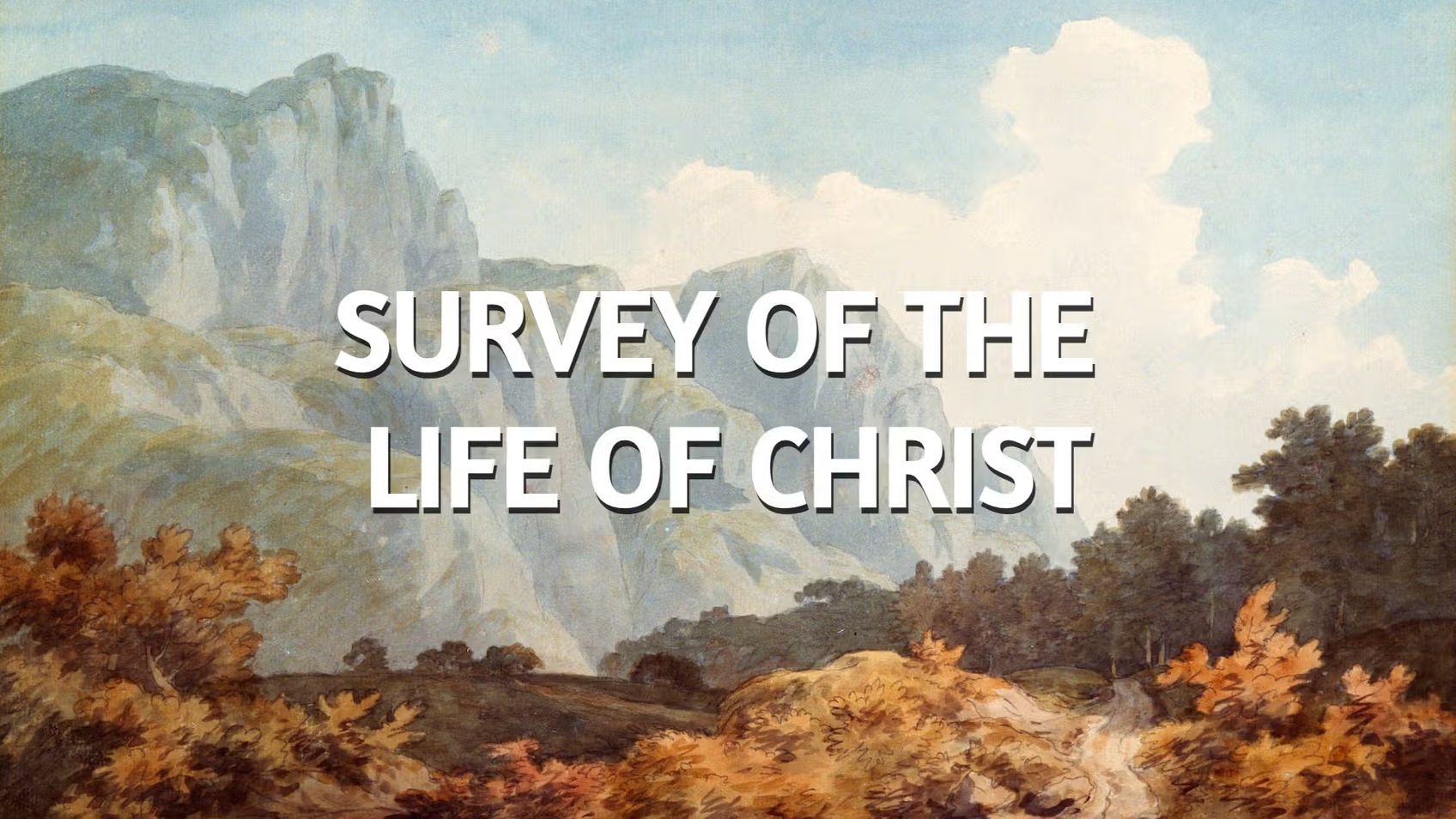The Crucifixion and Resurrection

Survey of the Life of ChristSteve Gregg
In this presentation, Steve Gregg discusses the events leading up to the crucifixion and resurrection of Jesus. He notes that Jesus celebrated Passover with his disciples, during which he washed their feet and delivered the upper room discourse. Gregg also explains the trial and execution of Jesus, as well as his burial and resurrection. He emphasizes the audacious claim of Christianity that Jesus is the living founder who still communicates with his followers today.
More from Survey of the Life of Christ
8 of 9

Perean Ministry and Passion Week
Survey of the Life of Christ
In this discussion by Steve Gregg, he covers the final days of Jesus' ministry and Passion Week leading up to his crucifixion and resurrection. Starti
Series by Steve Gregg

Hosea
In Steve Gregg's 3-part series on Hosea, he explores the prophetic messages of restored Israel and the coming Messiah, emphasizing themes of repentanc

Church History
Steve Gregg gives a comprehensive overview of church history from the time of the Apostles to the modern day, covering important figures, events, move

Ezra
Steve Gregg teaches verse by verse through the book of Ezra, providing historical context, insights, and commentary on the challenges faced by the Jew

Making Sense Out Of Suffering
In "Making Sense Out Of Suffering," Steve Gregg delves into the philosophical question of why a good sovereign God allows suffering in the world.

2 John
This is a single-part Bible study on the book of 2 John by Steve Gregg. In it, he examines the authorship and themes of the letter, emphasizing the im

Ecclesiastes
Steve Gregg teaches verse by verse through the book of Ecclesiastes, exploring its themes of mortality, the emptiness of worldly pursuits, and the imp

Lamentations
Unveiling the profound grief and consequences of Jerusalem's destruction, Steve Gregg examines the book of Lamentations in a two-part series, delving

Deuteronomy
Steve Gregg provides a comprehensive and insightful commentary on the book of Deuteronomy, discussing the Israelites' relationship with God, the impor

Beyond End Times
In "Beyond End Times", Steve Gregg discusses the return of Christ, judgement and rewards, and the eternal state of the saved and the lost.

Torah Observance
In this 4-part series titled "Torah Observance," Steve Gregg explores the significance and spiritual dimensions of adhering to Torah teachings within
More on OpenTheo

Why Should We Pray If God Already Knows What’s Going to Happen?
#STRask
January 29, 2026
Questions about why we should pray if God already knows what’s going to happen, how the effectiveness of prayer is measured, and whether or not things

How Would You Convince Someone That Evil Exists?
#STRask
November 17, 2025
Questions about how to convince someone that evil exists, whether Charlie Kirk’s murder was part of God’s plan, whether that would mean the murderer d

How Do I Determine Which Topics at Work Are Worth Commenting On?
#STRask
January 5, 2026
Questions about how to determine which topics at work are worth commenting on, and a good way to respond when you’re in a group Bible study and hear e

When I Can’t Stop Thinking About Something, Is That God Speaking?
#STRask
December 1, 2025
Questions about whether having a recurring thought is an indication God is speaking to you, what to say to someone who says they sinned because “God t

Kingdom Priorities: Following the Teachings of Jesus
Knight & Rose Show
February 14, 2026
Wintery Knight and Desert Rose discuss Jesus' teachings from the Gospels, emphasizing truth, evidence, self-denial, and forgiveness. They explore pass

Is It a Sin to Feel Let Down by God?
#STRask
November 6, 2025
Questions about whether it’s a sin to feel let down by God and whether it would be easier to have a personal relationship with a rock than with a God

Does Open-Mindedness Require Studying Other Religions Before Becoming a Christian?
#STRask
February 9, 2026
Questions about the claim that if Christians really want to be open-minded, they need to read and study other religions before committing to Christian

Prove to Me That Jesus Is Not a Created Being
#STRask
January 26, 2026
Questions about why we should think Jesus is not a created being, and what it means to say God became fully human if part of being human means not bei

Can You Recommend Good Books with More In-Depth Information and Ideas?
#STRask
January 22, 2026
Questions about good books on Christian apologetics, philosophy, and theology with more in-depth information and ideas, and resources to help an intel

What About Those Who Never Heard the Name of Jesus?
#STRask
December 22, 2025
Questions about what will happen to those who never heard of Jesus or were brought up in a different faith, whether there’s biblical warrant to think

Lora Ries: Border Security and Immigration Policy
Knight & Rose Show
December 7, 2025
Wintery Knight and Desert Rose welcome Lora Ries to discuss border security and immigration policy. They explore Biden's policy changes, like ending R

How Do You Justify Calling Jesus the Messiah?
#STRask
December 18, 2025
Questions about how one can justify calling Jesus the Messiah when he didn’t fulfill the Hebrew messianic prophecies, and whether the reason for the v

What Are Some Good Ways to Start a Conversation About God with Family Members?
#STRask
October 30, 2025
Questions about how to start a conversation about God with non-Christian family members, how to keep from becoming emotional when discussing faith iss

Sense, Sensibility, and Adam Smith with Jan Van Vliet
Life and Books and Everything
February 16, 2026
This year is a special anniversary for the United States as Americans celebrate 250 years of independence. But 1776 was an important year in more ways

Shouldn’t I Be Praying for My Soul Rather Than for Material Things?
#STRask
February 2, 2026
Questions about whether we should be praying for our souls rather than for material things, why we need to pray about decisions, whether the devil can
